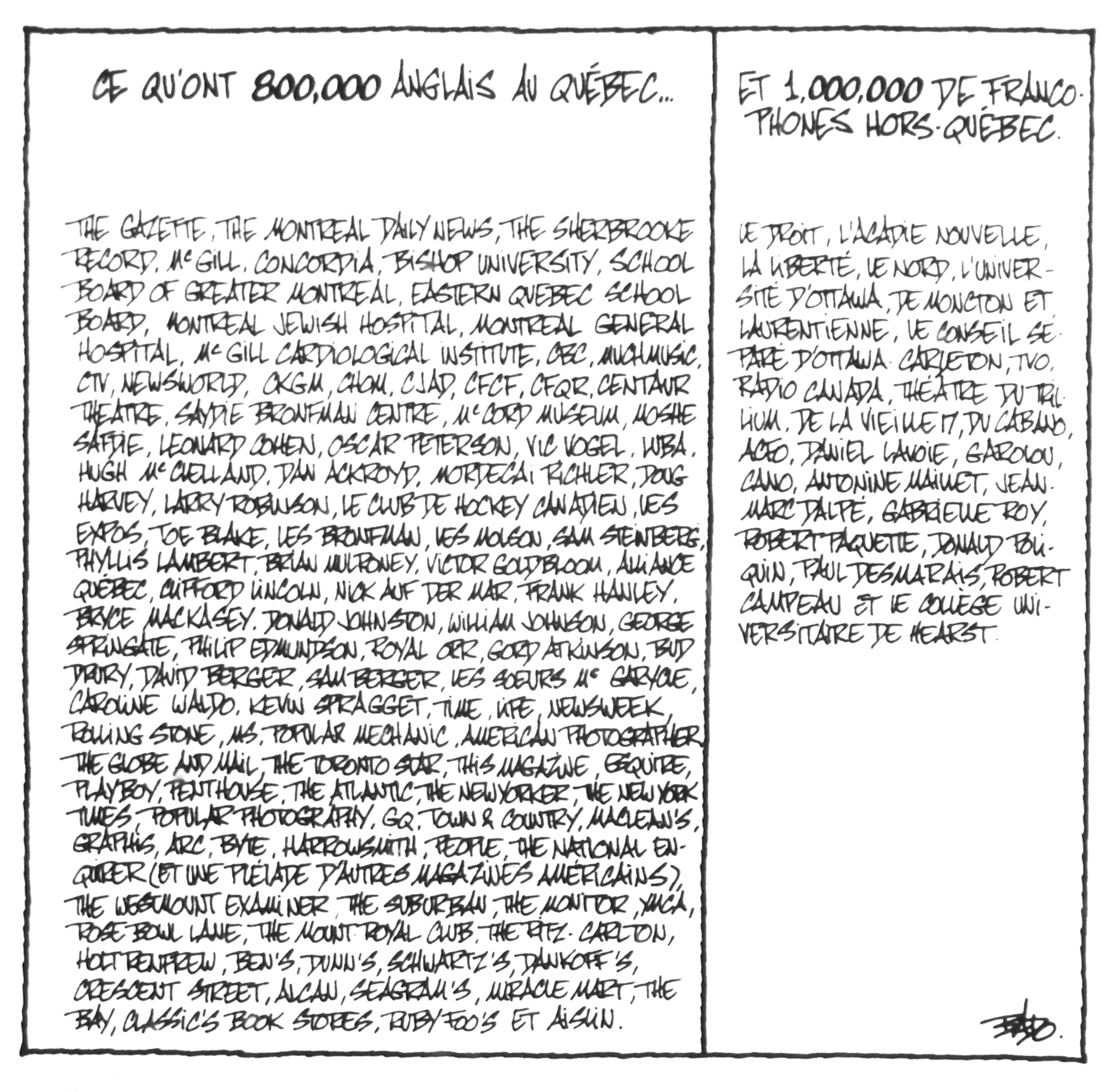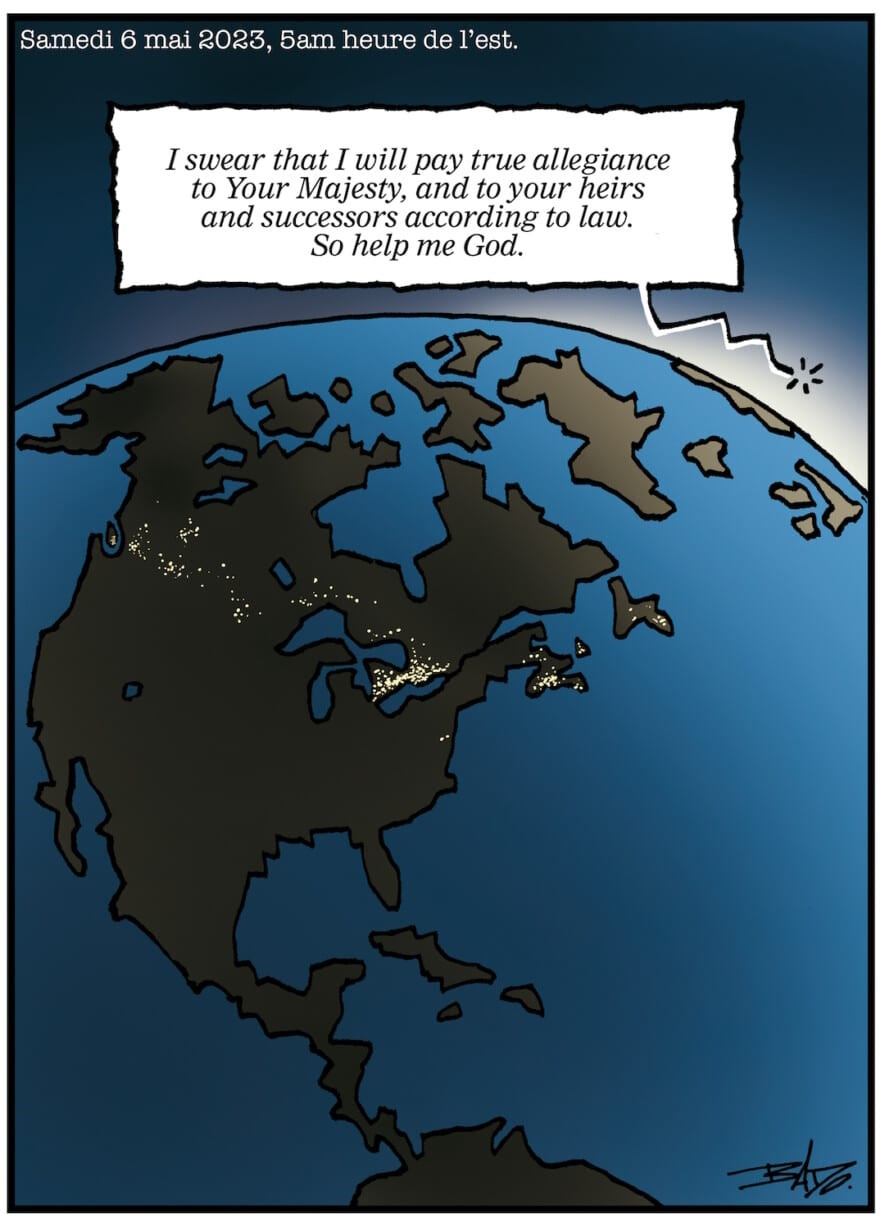The two solitudes
The expression “two solitudes” comes from a novel by Hugh MacLennan by that name, first published in 1945. It refers to the distant and tense relations between French Canadians and English Canadians, two of the three founding people of modern-day Canada. MacLennan’s novel unfolds between 1914 and 1939, telling the story of a man sitting on the fence between two cultures. He tries to connect with the sources of his identity, and thereby imagine an idyllic vision of Canada. In reality, the title of the novel has become a symbol of a dysfunctional country where everything works against the dreams and aspirations of francophones and anglophones.
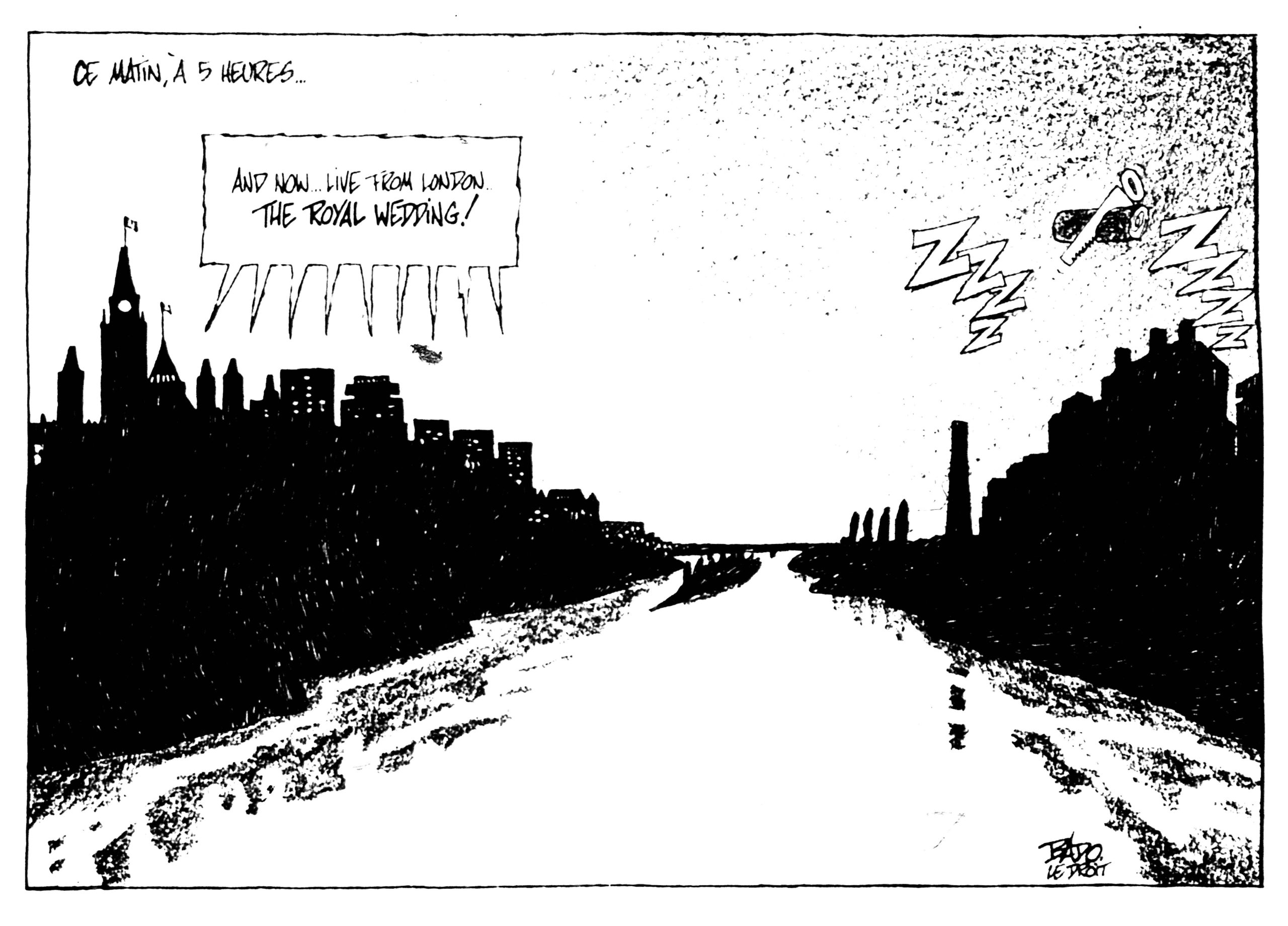
The different reactions to the wedding of Prince Charles and Lady Diana Spencer on the Ottawa and Quebec sides of the river.
Throughout his career, Bado frequently illustrates that theme, focusing on the different points of view and the lack of communications between Canada’s two main language groups. He also often highlights the very different realities between Quebec’s English-speaking minority and the French-speaking minorities in the rest of Canada.

Cultural difference between francophones and anglophones. In Quebec, singer Mitsou, at the height of her fame, makes the headlines. In English Canada, the one in the news is Yolanda Ballard, one-time companion of Harold Ballard, aging owner of the Toronto Maple Leafs. The family is in a public war over his estate, arguing that he is no longer fit to manage his assets.
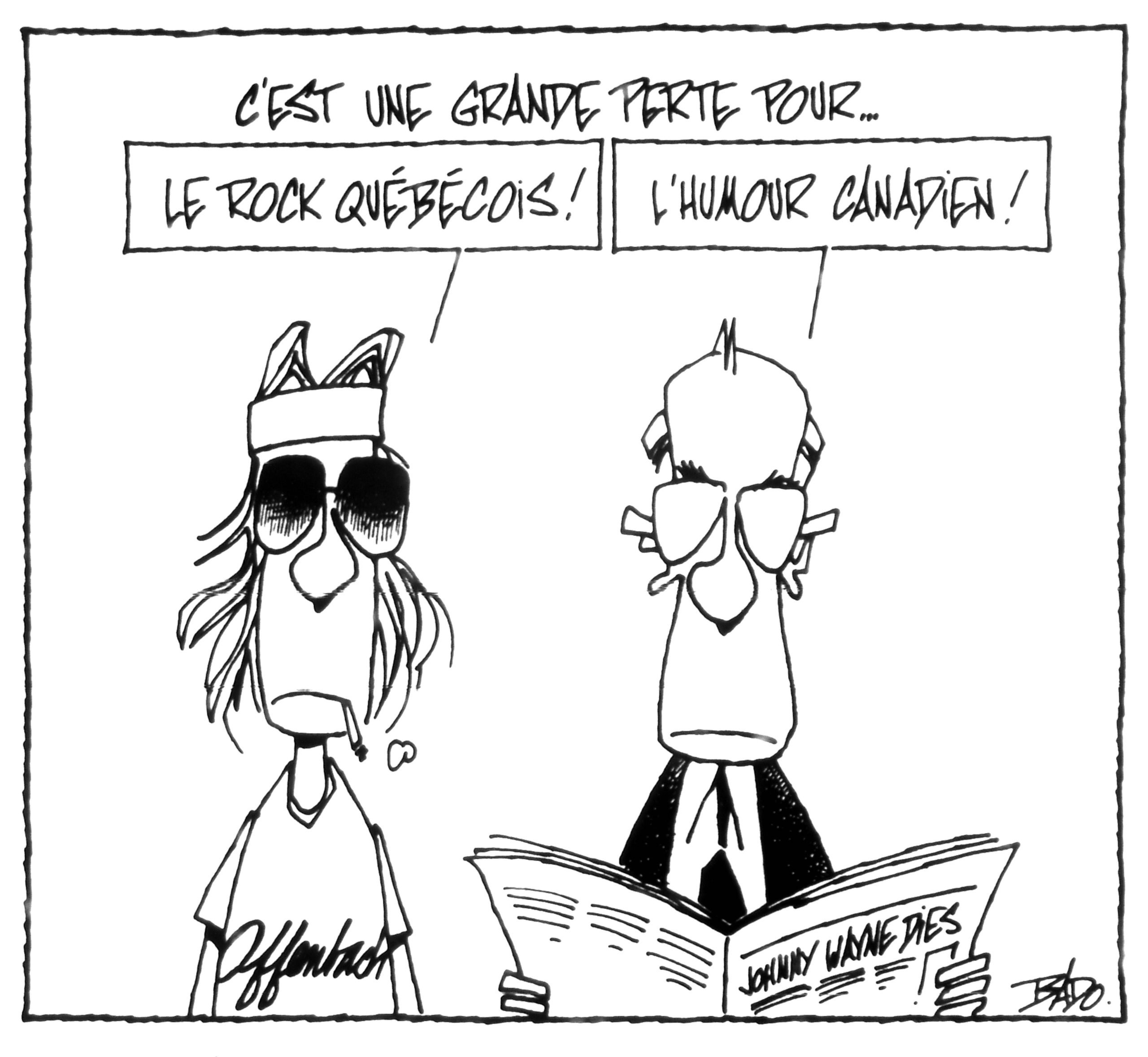
Cultural difference between francophones and anglophones. While Quebec is mourning singer Gerry Boulet, English Canada is mourning comedian Johnny Wayne of Wayne and Shuster fame, who died on the same day.
From a historical point of view, the concept of two nations is based on the notion advanced by numerous French-Canadian intellectuals that the Constitution Act, 1867 is a contract between Canada’s two founding nations. (It should be noted that at the time, the First Nations were about to be subjected to the famous Indian Act that forced them to gradually abandon their culture and lifestyle. That’s a long way from recognition as a founding people.) Henri Bourassa, the founder of Le Devoir, went as far as to declare that the pact of 1867 was one between two races, aimed at establishing a bicultural Canada. At the same time, many English-speaking and British politicians of the day saw the Constitution Act, 1867 as a means of restricting the use of French in Quebec.
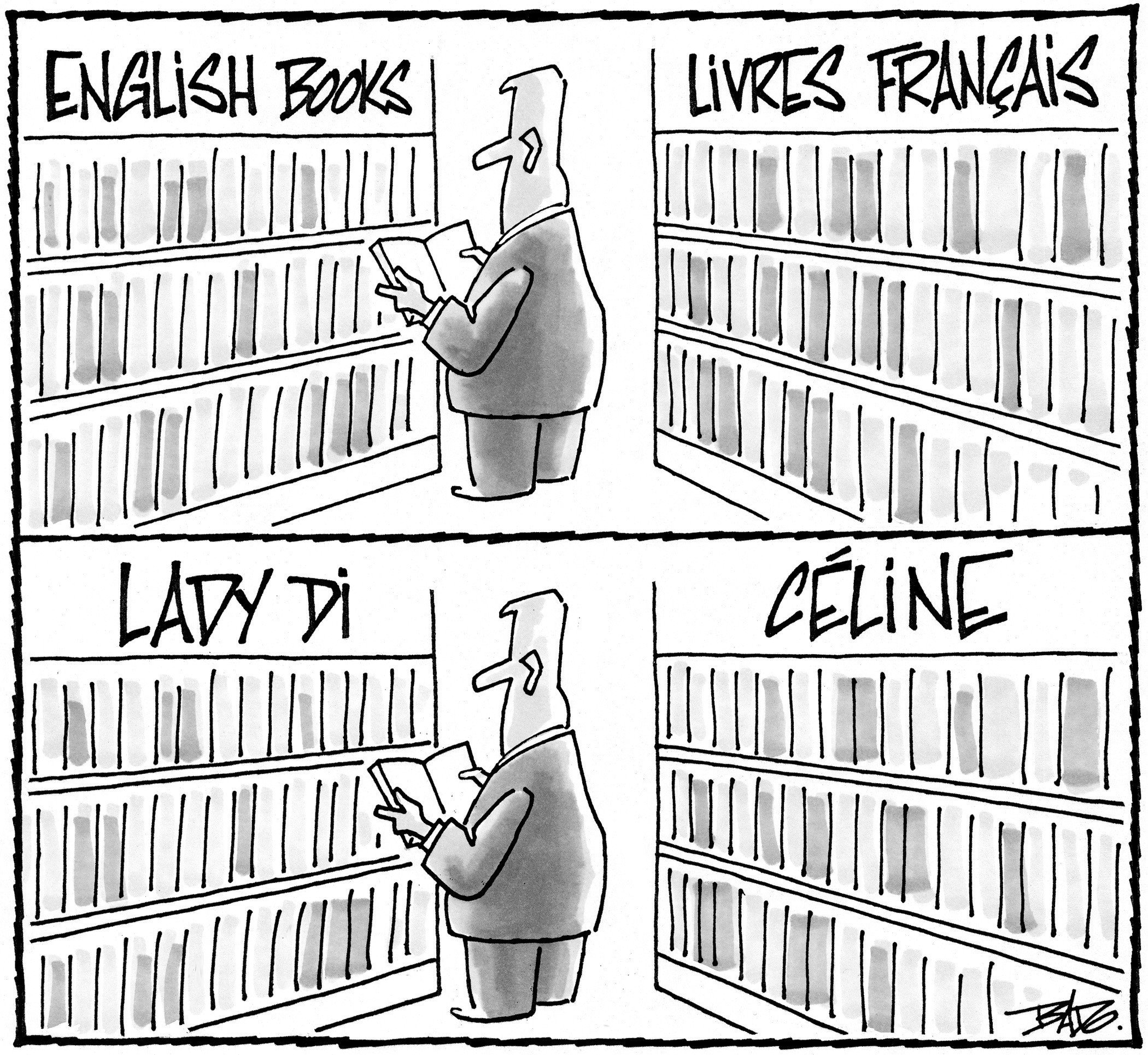
Cultural difference between francophones and anglophones from the literary point of view. On the francophone side, the release of the biography of Céline Dion by Georges Hébert Germain. On the anglophone side, the release of a book about Lady Di, tragically killed a few months earlier.
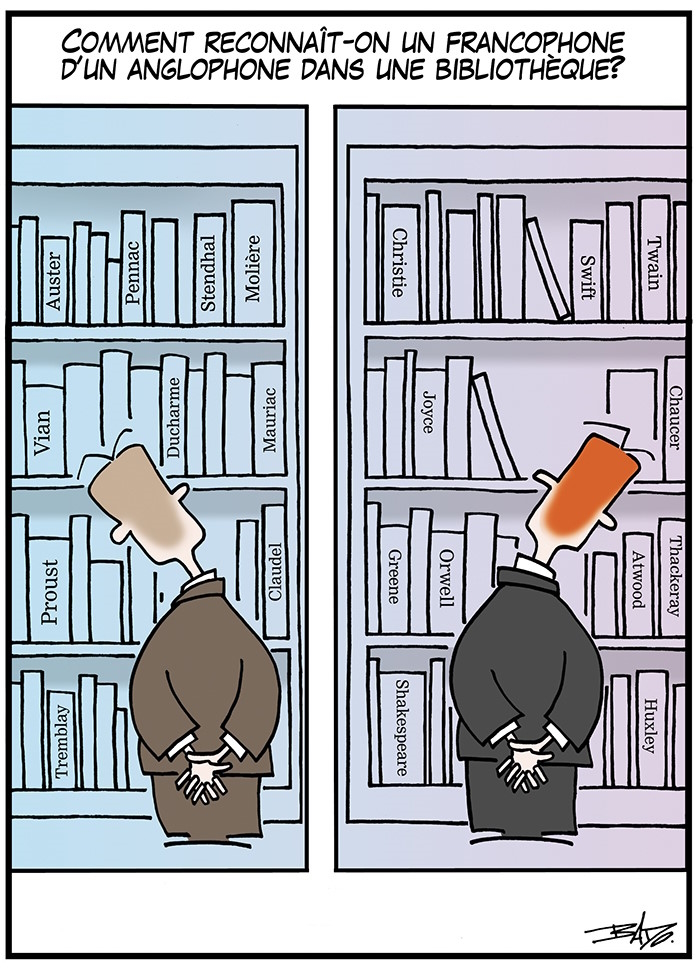
Difference between francophones and anglophones from the literary point of view. In the French books section, the titles are written from bottom to top to make them easier to read when the books are upright, as in a library. In the English books section, it’s the opposite, to make them easier to read when the books are piled on a table.

The different reactions on the Ottawa and Quebec sides to the wedding of Prince Harry and Meghan Markle.
The idea of the two founding people would evolve, little by little, for more than a century, creating the concept of a French Canada unifying all of the country’s francophones. That evolution led to the Royal Commission on Bilingualism and Biculturalism (Laurendeau-Dunton), itself infused with the overarching idea of the two nations. That notion would run headlong into the concept of multiculturalism defended by Pierre Eliott Trudeau. For some francophones, the fantasy of two nations endures to this day. For others, it has been replaced by a more sovereign option. Many anglophones came to accept the idea of the form of multiculturalism that was entrenched in the 1982 Constitution. The two main language groups would carry on in their respective silos, with values, aspirations and cultures marked by very little common ground.
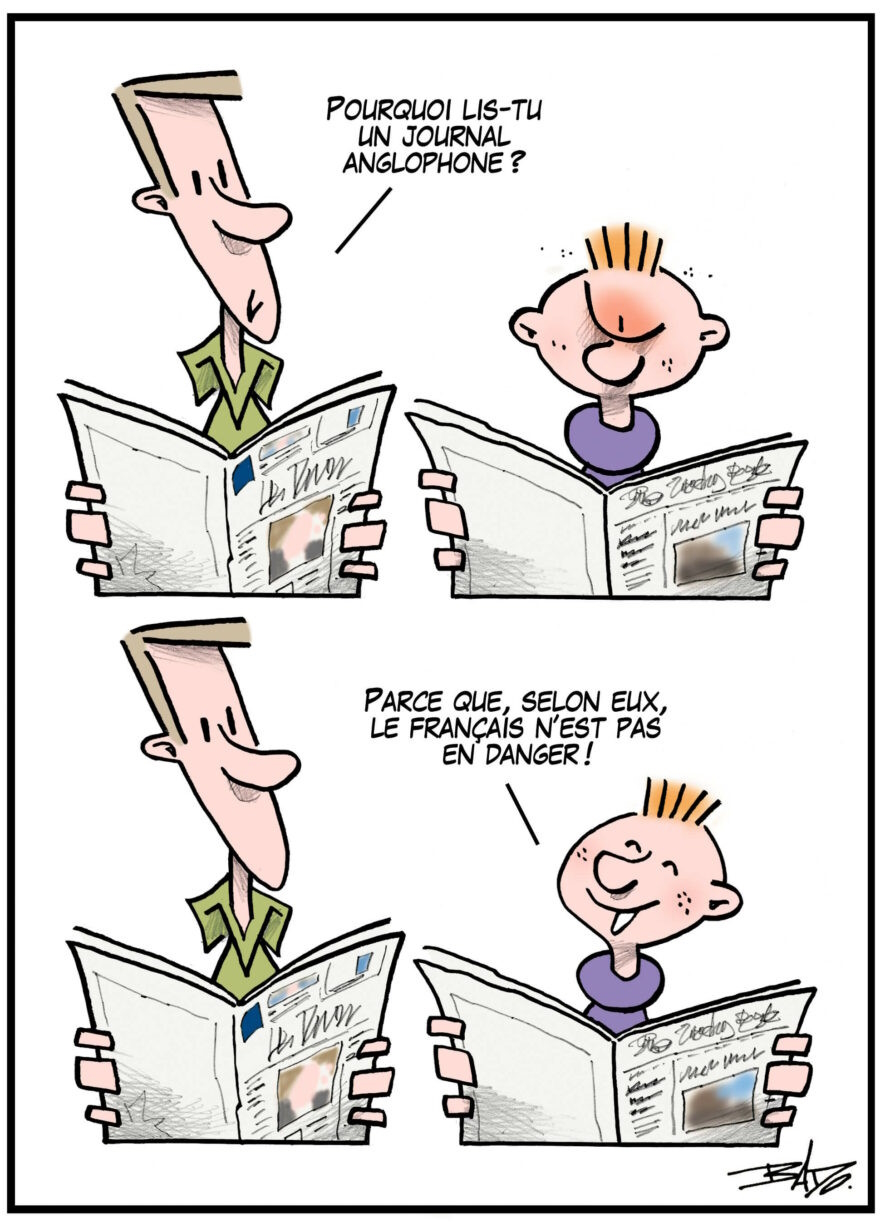
Different perceptions in francophone and anglophone newspapers about the danger facing French in Canada.


